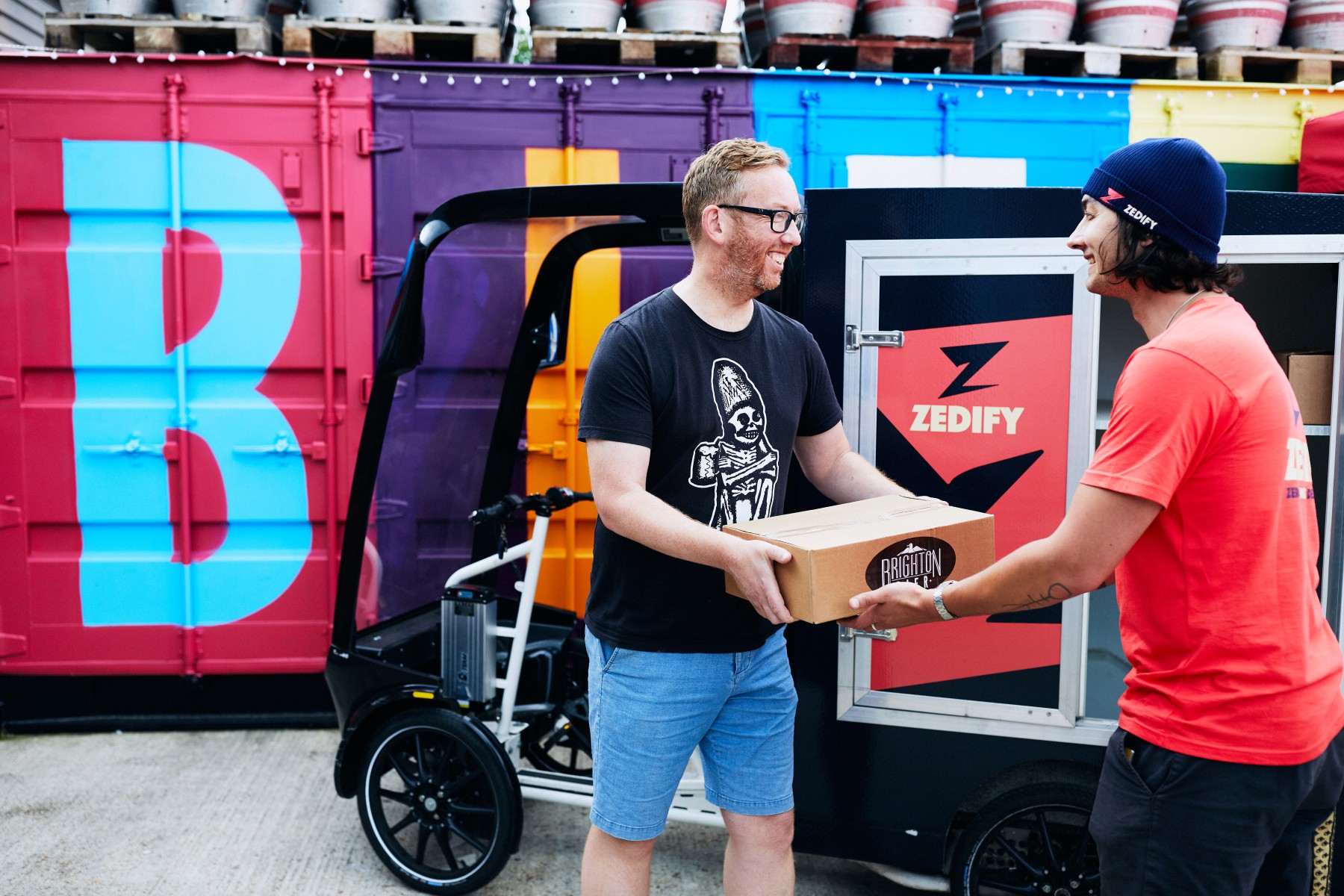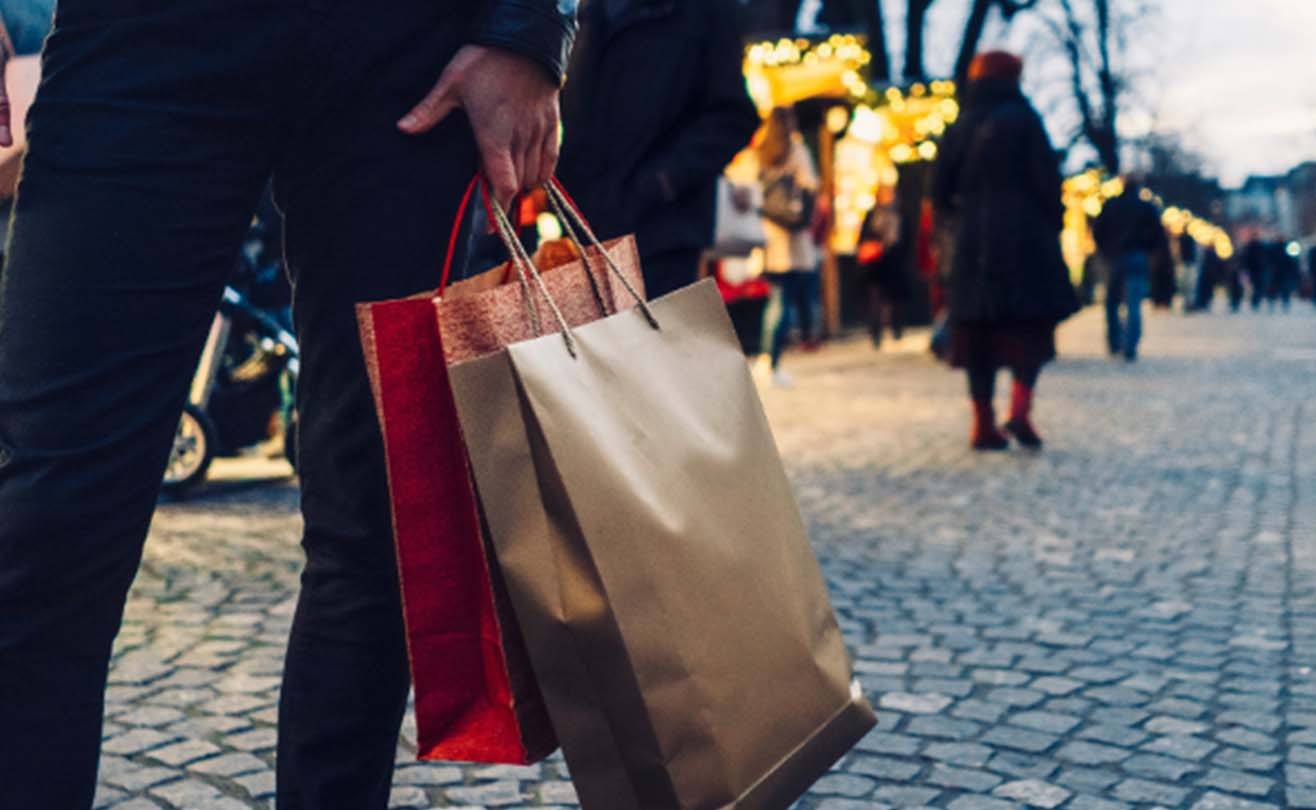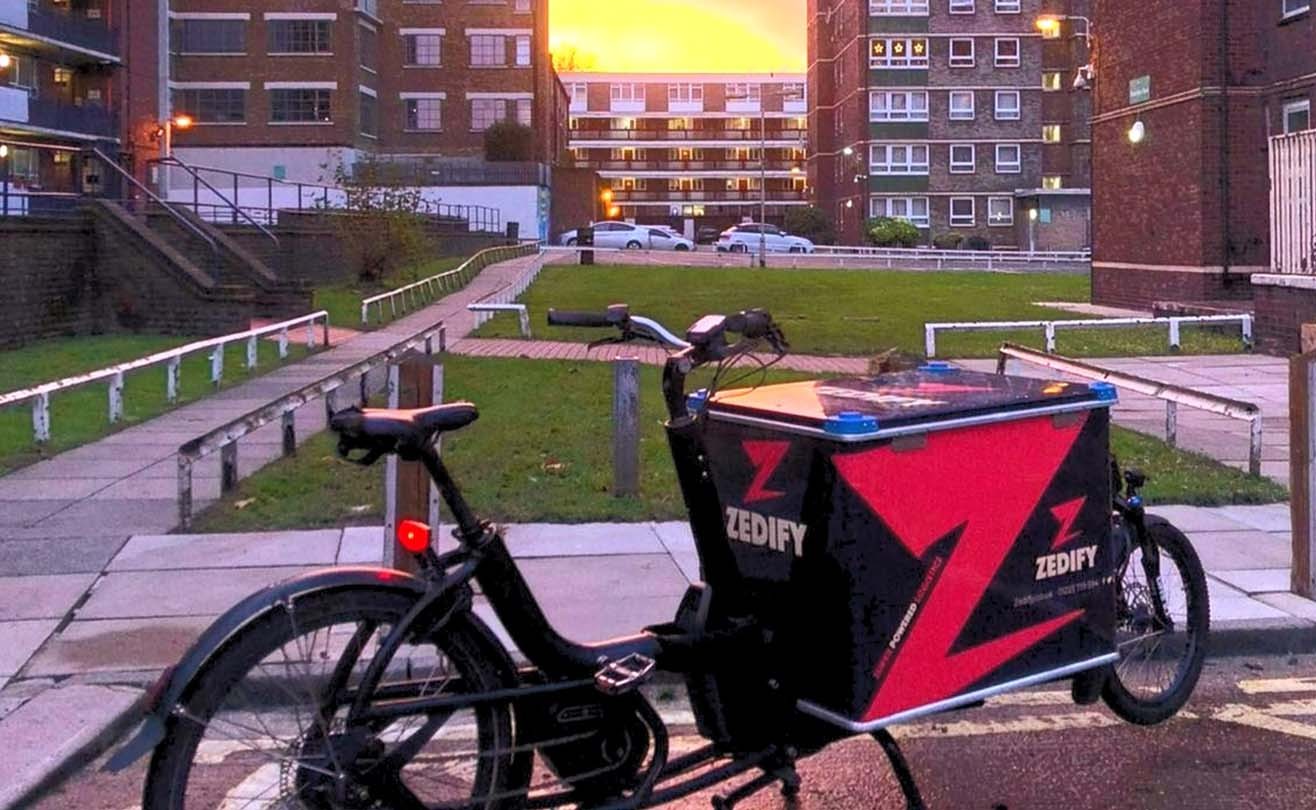
Thedeliverypeakseason:howtodoitright
 December 2nd, 2023
December 2nd, 2023 Bex Young
Bex Young 10 minute read
10 minute readWe’re in the thick of the peak Christmas season, and the importance of quick, reliable deliveries is greater than ever. Having been up and running since 2018, we’ve weathered a fair few peak seasons now. However, 2023 will be our first with Zedify Chairman John Hughes onboard.
John is the ex-Yodel Chairman and a KPMG veteran, with 20+ years of industry experience under his belt. So, who better to learn peak dos and don’ts from? Let’s introduce John first.
You can also watch some of this interview on Youtube
Meeting Zedify Chairman John Hughes; ex-Yodel, KPMG and retail
On his experience in and passion for logistics, he says, “Well – if I go back to my own youth, my father had a small haulage business, and all my family were in some form of retail offering. So it’s probably steeped in me, really! I mean, I think the combination of retail and logistics is just fascinating… it’s just something that appeals to me. When I was with KPMG, I met some remarkable innovators in retail – particularly being up in the north of England – and I met a whole breadth of logistics organisations.
After I left KPMG, I went on to be chairman of a retail organisation, an online retail organisation, which was fantastic, and then moved on to being the chairman of Yodel logistics (you know, not an opportunity I saw coming).”
John says, “I think the thing that really fascinates me is that it’s an industry in which you can get terribly right and delight your customers and make lots of money or – you can get it terribly wrong.”
What’s the key to good customer service during peak?
“I think really if I look at what makes what gives good customer service any time of year and indeed at those heightened times of peak, I think it’s the basics, you know for any logistics organisation. You’ve got to have – I’ve always said this – the various levers all going in the right direction at the right time and with the right momentum.
So, a lot of it comes down to business as usual.
You know, are you looking after your people, you giving them the training, are you communicating with your various stakeholders, whether it be your drivers, your customers?
Have you invested in your IT, in your processes?
All of these are the things which a logistics business needs to come together to provide a good customer service, and what you’re trying to do in peak… you’re trying to cope with those swells in volumes, which will be twice, three, or four or five times.”
The importance of strong leadership
“It’s obviously key to have good leaders in your business who motivate people during peak, because it’s because it’s hard. The men and women in these organisations do an incredibly difficult job. They’re incredibly conscientious. It’s cold. They’re working long hours in difficult conditions. So I think on top of that – it’s making sure that time is taken to have good communications, good planning with your customers, with your additional, in effect, subcontractor organisations and partners to get it right – to plan properly. And if you plan properly, you stand half a chance of getting it right.
Today, ‘good’ logistics is all about a combination of ensuring we lead our teams – motivating and inspiring them – together with innovation, and the use of data to drive efficiency.”
Is it a year round operation, or is there an extra element that businesses should be thinking about during peak?
“You’ve got peaks around the year and then there’s some dry, some quiet periods. So, it’s just planning for those peaks. Now, what is difficult you know, if you can’t get enough drivers or riders, if you can’t get enough tractors, if you can’t get enough trailers… if you can’t get enough vans. So building up that those relationships with those providers year round is a key element, so you work in them in tandem with them.
You know, you develop good, strong partnerships, and then people together can cope with the peak volumes.”
Do you think there’s anything in particular that’s changed in regard to those seasons throughout the year, particularly this sort of Black Friday, Christmas peak season in the last, say, ten years? Is it all about new tech that kind of features in the media all the time, or is there something else leading it, a change when it comes to e-commerce?
“The remarkable change in tech has certainly helped organisations provide better service throughout the year, I think, including peak, and will continue to do so.
And if you get it [a delivery] right first time, you know, you’re not just delighting your customers, but you delighting, you become more sustainable in the beginning.
You don’t want something coming back.
I think the thing which hasn’t been resolved properly over the last decade, which makes it difficult, is dealing with the level of returns. But that’s a discussion for when we meet again!”
Let’s talking about the media and the kind of some of the exposure that delivery companies get… I think last year was a particularly bad year for some of the press around ruining Christmas with parcels being left in unsafe places or parcels being stolen some I think we even found a car boot sales. Do you think that some of that coverage is perhaps a bit unfair?
“It kind of comes with the nature of the job… things aren’t always going to go right. As a consumer at Christmas time, yes indeed – I’ve had a a parcel which I was expecting that hasn’t turned up. And it’s, you know, it’s disappointing.
I think it’s an industry where the level of emotional attachment to not receiving, that gift or parcel is very much heightened, and is even more heightened in these particular times of year. But the customer has an expectation, and a promise to be made.
In terms of the media, it makes a great story to see boxes being thrown over the fence or, you know, a vehicle parked in the wrong place or whatever. And all businesses are going to have that element in it. And… funny stories can be made, but behind the scenes, the volumes of these parcels, whether it be the major 3PLs and Zedify included, is that if they’re doing a great job, you are still going to have things which are going to go missing. It’s about then having empathy with the customer, and trying to correct the service and trying to make sure you don’t make the same mistake twice, etc. So yes, you can have lots of media stories, but what goes in to providing the huge amounts of perfect on time delivery is no one writes about those, do they!”
On that doorstep experience for consumers… do you think there’s one thing in particular that is really key for businesses to get right? Is it the smiling, personable person at the door? Is it is it being simply on time… or is it something more to it?
“I think it’s about all of it. You know, you think about it, your perspective – it’s nice to see a smiley person. They’re dressed appropriately, delivering you your parcel. On time, on the right day, etc… in a manner which you would expect.
So I think I just I just think that doorstep experience is a combination of all of that. What I’ve just said and I’d say again is, if something’s going wrong, the sooner the organisation can hear about it and deal with it, the better. Because like you said, you know, you’re not going to get 100% precision.”
With the huge volume of deliveries that are coming through at Christmas time, do you think there’s a sense from retailers that they’re getting more keen to act on the sustainability principles?
“Well, look at some of our our local accounts, our national accounts. You know, the reason they’ve chosen Zedify is because of sustainability.
I think coming back to the previous question as well, you know – what does the customer want as well?
You want you want your parcel, whatever it is, delivered in a pristine condition, which enhances it. So that’s of course the type of packaging, talking to a lot of our retailers, they know what type of package packaging to be using sustainably, and then part of the journey is the doorstep experience… Buying online you know, there’s a lot of consumers like the new generations coming through, who demand that the packaging in which they have that parcel comes in is sustainable and can be reused, everything else…
And I think that’s that’s in part of the doorstep experience, knowing that they’re ordering online. But they’re doing this in a very measured way, which helps the planet. And it’s [sustainability] is not going to go away. It’s going to intensify and quite rightly.”
On that topic of putting this sustainability in the hands of the retailer, do you think there’s an imperative for retailers to be offering sustainable deliveries, or at least a selection of delivery providers, to consumers? Or do you think maybe it’s okay to sit with one provider, and do it really well?
“I think that’s a question that consumers and customers will answer, really. And everything I read about customers and consumers, well… that demand for getting the the quality of service on top of sustainability… It’s not just going to be seen as sort of something on the side, it’s [sustainable deliveries are] going to be mainstream.”
It’s interesting because there’s more of that sort of choice element for consumers with the peer to peer channels, places like Vinted and Depop, where there’s multiple options and you can see the sustainability credits of each one. So do you think it will become more commonplace over time?
“Well, I speak to my own daughters, I speak to a lot of customers – it’s only going one way. It’s going to be part of life, it already is part of life. You know, the green journey has started. So for those retailers or logistics providers and not on the journey… well, it’s going to be rougher.”
Our final question is about a piece of advice you would give a logistics manager in an e-Commerce business, for this time of year when thing are super busy… what would it be?
“It’s being able to say to the team – you’ve got my number, pick up the phone and let me sort out the problems as they come up. Really, it’s about communication – and continued innovation.”
—
A huge thanks to John for his wisdom and time. You can connect with John on LinkedIn >




